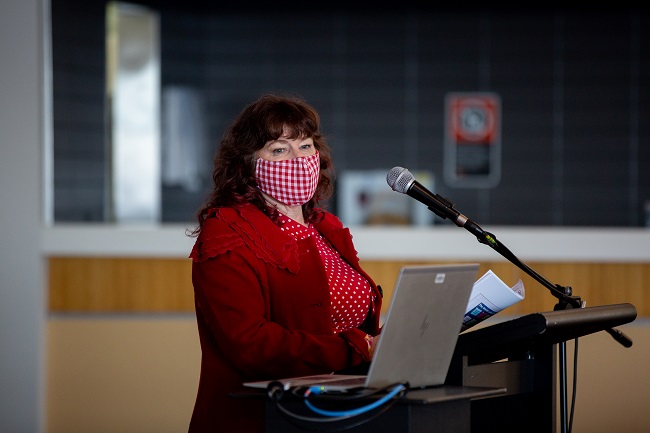5th August 2021
The Hunter Ageing Alliance and the City of Newcastle came together in August 2021 to facilitate a community engagement workshop on the topic of developing an Age Friendly City.

About the Hunter Ageing Alliance (HAA)
Age-friendly communities mean that planning takes the needs of older people into account, recognising that older people have the same desire to remain physically, intellectually, and socially active as younger people. This requires environmental adaptation, appropriate housing at all levels of affordability, easy access to information about services and facilities for older people, protection from elder abuse, health care services appropriate to the needs of older people and support for socially isolated people to ensure their physical and psychological well-being.
The HAA’s goal is to register Newcastle and Lake Macquarie within the World Health Organization (WHO) Global Network of Age-friendly Cities and Communities. To this end, members of the HAA will work with all levels of government, statutory authorities, and NGOs on:
- The environment – including public spaces, transport, and access for people with disabilities
- Appropriate housing – Including social housing, communal housing, and emergency housing
- Elder abuse – awareness, assessment, and prevention
- Health services – particularly the assessment and management of dementia and chronic diseases
- Social isolation – securely identify isolated older people and provide for their physical and psychological well-being
- Ageing and aged care services information – ensuring accessibility
- End-of-life legal planning and health care – ensuring availability to all
These programs will help transform Newcastle and Lake Macquarie into communities which older people would be attracted to live or visit as tourists. Creating significant economic and social opportunities for the Hunter, as well as benefiting our older population.
You can find out more information on HAA here.
Newcastle as an Age Friendly City
The Age Friendly City workshop will now inform the City of Newcastle’s social strategy, the Local Social. The Local Social strategy will address barriers to inclusion and equal opportunity, encourage community participation, and strengthen community wellbeing. It will set Newcastle’s aspirations for a socially just and inclusive city and will guide Newcastle’s collaborations for social change over the next decade. This period also coincides with the World Health Organisation Decade of Healthy Ageing.
You can find more information on the Local Social here.
Professor Julie Byles BMed PhD FAAHMS
Director | Centre for Women’s Health Research
Global Innovation Chair in Responsive Transitions in Health and Ageing
School of Medicine and Public Health
The University of Newcastle
Email: julie.byles@newcastle.edu.au
ILC-Israel announces new leadership
Despite challenging times in a long and terrible war for all involved on both sides of our borders, ILC-Israel is still active and planning a busy year of activities.
10 October 2024
Dynamic knowledge synthesis in local networks for coherent elderly care
We are getting older and more diverse, and that brings challenges. We cannot solve these challenges through healthcare alone. We also need municipalities, schools, companies, housing associations and older people themselves to achieve an age-friendly society. This requires cross-domain collaboration. But how can we achieve that?
25 April 2024
Event summary – Healthy ageing and longevity in Europe: How do we prepare for the 100-year life?
In partnership with ILC-UK, the ILC Europe Network hosted its inaugural conference in Brussels on 6 March 2024 to explore the challenges and opportunities associated with an ageing European society. Other ILC Global Alliance members in attendance included ILC-Czech Republic, ILC-France and ILC-Netherlands.
March 2024


